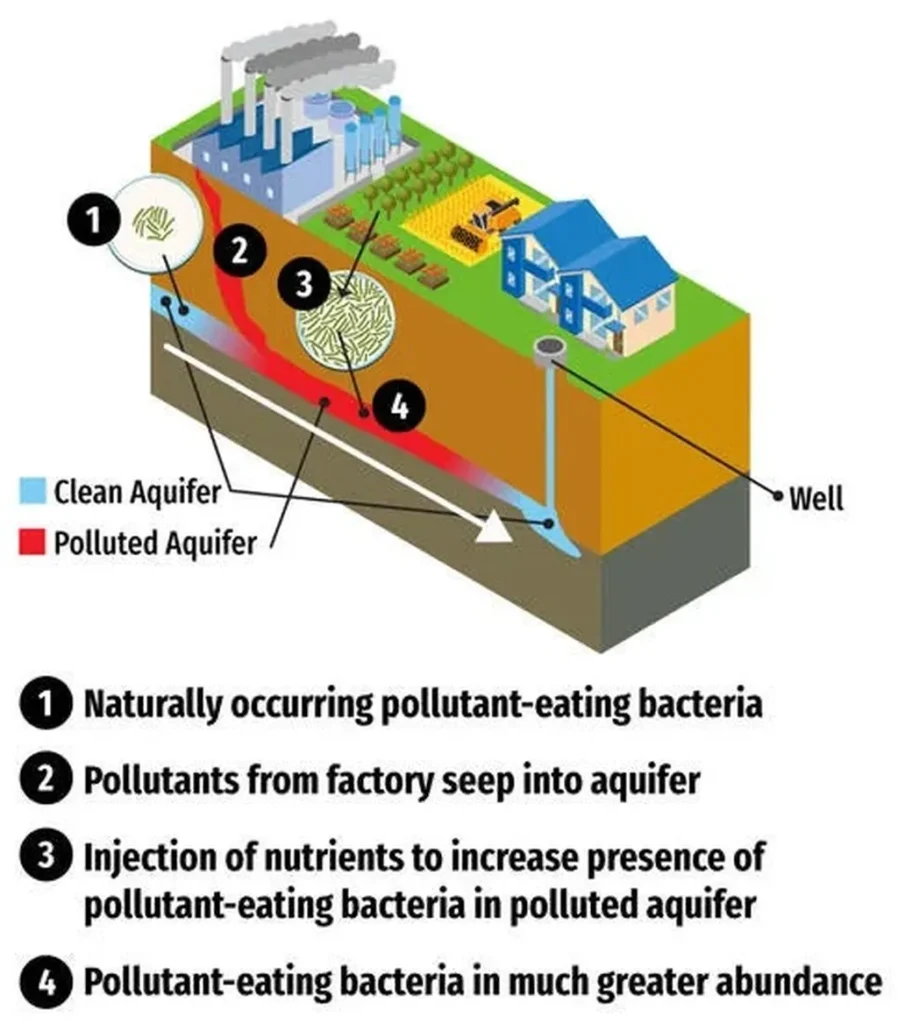In the quest for sustainable and efficient water treatment solutions, a groundbreaking study led by O. M. Kvartenko has unveiled a promising biotechnological approach to groundwater purification. Published in the journal ‘Agricultural Science and Practice’ (translated from Ukrainian as ‘Agricultural Science and Practice’), this research explores the use of specific bacteria to remove excess iron and other contaminants from groundwater, offering a potential game-changer for water supply systems, particularly in rural and agricultural sectors.
The study focuses on the application of chemolithoautotrophic ferrobacteria from the Gallionella genus and heterotrophic bacteria from the Lepthothrix genus. These microorganisms play a crucial role in the biological purification process, effectively removing iron (Fe2+) compounds, ammonium nitrogen, and soluble organic substances from groundwater. The research highlights the importance of optimizing technological parameters, such as filtration velocity and filter-cycle duration, to ensure the efficiency of the purification process.
One of the key findings of the study is the determination of optimal parameters for biological purification of neutral groundwaters containing elevated levels of Fe2+ cations. According to Kvartenko, “The optimal parameters for the process of biological purification of neutral groundwaters, containing increased concentrations of Fe2+ cations were as follows: pH 7.0–7.2; hydrocarbon alkalinity 2.5–2.2 mmol/dm³; content of soluble oxygen – 1.5–2.0 mg/dm³.” These parameters are crucial for the effective operation of the biotechnological system.
The research also investigates the ability of concentrated matrix structures of Gallionella and Lepthothrix ferrobacteria to remove Cr6+ ions from natural groundwaters. This finding opens up new possibilities for the application of these bacteria in the treatment of contaminated water sources, addressing a significant environmental challenge.
Moreover, the study explores the use of disinfectants based on polyhexamethylene guanidine chloride (PHMGchl) and polyhexamethylene biguanidine chloride (PHMBchl). The results indicate that these disinfectants are effective in eliminating pathogenic microorganisms, including Staphylococcus aureus, Escherichia coli, and Pseudomonas aeruginosa, as well as common bacteria found in technical water supply systems.
The implications of this research for the energy sector are substantial. Efficient and sustainable water treatment solutions are essential for maintaining the reliability and performance of energy infrastructure, particularly in regions with limited access to advanced water treatment technologies. The biotechnological approach proposed by Kvartenko and his team offers a promising alternative to traditional water treatment methods, with the potential to reduce operational costs and environmental impact.
As the world continues to grapple with water scarcity and contamination issues, the findings of this study provide a beacon of hope for the development of innovative and sustainable water treatment solutions. The research not only advances our understanding of the role of specific bacteria in groundwater purification but also paves the way for future developments in the field of biotechnology and water treatment.
In the words of Kvartenko, “This was the first study on the possibility of applying the biotechnology of groundwater purification from excessive amounts of iron in conditions of uneven hydraulic burden, notable for the water supply systems of rural areas and most agricultural enterprises in the north-western and northern regions of Ukraine.” This pioneering work sets the stage for further exploration and application of biotechnological solutions in water treatment, with far-reaching implications for the energy sector and beyond.
Published in the journal ‘Agricultural Science and Practice’, this research serves as a testament to the power of scientific inquiry and innovation in addressing some of the most pressing challenges of our time. As we look to the future, the insights gained from this study will undoubtedly shape the development of more sustainable and efficient water treatment technologies, benefiting communities and industries worldwide.

